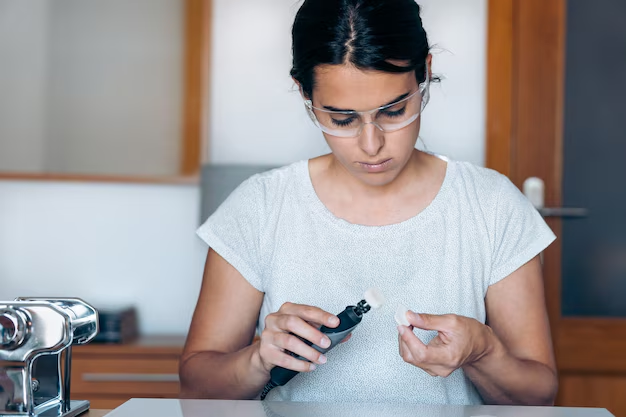Does Sugar Really Lead to Acne Breakouts? Here's What You Need to Know
Acne can feel like an unsolved mystery—a source of endless frustration and insecurity for teenagers and adults alike. If you've ever battled with acne, you've probably heard various theories about its causes. One common suspect? Sugar. But does sugar really cause acne, or is it just another myth in the complex web of skincare advice? Let's dive deep into the science, explore related aspects, and uncover the truth about sugar's role in acne development.
What is Acne?
Before delving into the specifics of sugar's impact, it's essential to understand what acne is. Acne is a skin condition that occurs when hair follicles become clogged with oil and dead skin cells. This can lead to:
- Whiteheads
- Blackheads
- Pimples
Acne can be influenced by several factors, including genetics, hormones, and lifestyle. However, diet is an area that often draws attention and debate due to its complex relationship with skin health.
The Sugar and Acne Link: Is There a Connection?
The notion that sugar can contribute to acne breakouts isn't just guesswork—there's science to back up the claim. Here's a closer look at how sugar might influence acne:
The Glycemic Index Factor
Foods that are high on the glycemic index (GI) cause a rapid spike in blood sugar levels. Common high-GI foods include sugary snacks, white bread, and sodas. When blood sugar rises quickly, the body responds by producing more insulin, which may:
- Increase oil production in the skin
- Trigger inflammation
- Contribute to acne development
Takeaway: High-GI foods can exacerbate acne by promoting inflammation and excess oil production.
Sugar and Hormonal Changes
Insulin doesn't just manage blood sugar; it also affects other hormones that can impact skin health. An increase in insulin levels can lead to higher levels of androgen hormones. Androgens are known to:
- Stimulate sebaceous glands, leading to more oil production
- Increase the likelihood of clogged pores and breakouts
Takeaway: Elevated insulin from sugary diets might ramp up hormone levels that contribute to acne.
Exploring Additional Dietary Factors
While sugar is often highlighted, it's crucial to look at the broader dietary picture to fully understand its impact on acne.
Dairy and Acne
Some studies have shown a connection between dairy products and acne. Milk, especially skim milk, may affect hormone levels and worsen acne. The presence of certain hormones in milk could be the culprit.
Fats and Oils in the Diet
Contrary to some beliefs, not all fats exacerbate acne. However, diets high in unhealthy trans fats and saturated fats might contribute to skin inflammation.
Omega-3 Fatty Acids
Incorporating omega-3s, found in fish and flaxseeds, can help reduce inflammation, potentially improving acne.
Takeaway: A diet high in processed foods including sugar and unhealthy fats, alongside certain dairy products, may increase your acne risk, whereas a balanced diet with omega-3s can be beneficial.
Lifestyle and Acne: Other Important Considerations
Diet is just one piece of the acne puzzle. Addressing lifestyle factors can also provide benefits:
Stress and Sleep
Stress triggers cortisol release, which can increase oil production. Lack of sleep affects hormone regulation, exacerbating acne.
- Managing Stress: Consider exercise, meditation, or hobbies to lower stress levels.
- Sleep Routine: Establishing a regular sleep schedule can help maintain hormone balance.
Skincare Habits
Proper skincare routines are essential in managing acne. Consider gentle, non-comedogenic products to avoid irritating the skin further.
Takeaway: A balanced lifestyle, including proper stress and sleep management, complements a healthy diet in maintaining clear skin.
Practical Steps and Solutions
Understanding the role of sugar—as well as other dietary and lifestyle factors—can empower you to take actionable steps toward clearer skin.
Moderation is Key
Eliminating sugar completely isn't necessary, but moderation is wise. Try:
- Reducing consumption of sugary drinks and snacks
- Opting for whole grains and vegetables that have a lower glycemic index
- Monitoring how different foods affect your skin
Holistic Skincare Approach
- Hydration: Drink plenty of water daily to help maintain skin moisture and health.
- Daily Sunscreen: Use a non-comedogenic sunscreen to protect your skin from UV damage.
- Cleansing Routine: Stick to a regular cleansing routine, using products appropriate for your skin type.
Professional Guidance
If dietary adjustments and lifestyle changes aren't effective, consult with a dermatologist to explore further treatment options.
Takeaway: A balanced diet combined with a holistic skincare routine is a powerful approach to managing acne.
Wrapping It All Up
The relationship between sugar and acne isn't straightforward but understanding it can guide you toward better skin health. Excess sugar can contribute to acne by increasing insulin, affecting hormones, and promoting inflammation. However, it's part of a broader dietary and lifestyle pattern that includes other potential triggers, such as dairy and stress.
With a moderated approach to sugar and attention to other dietary factors, lifestyle habits, and skincare routines, you can navigate the complexities of acne management. Remember, each person's skin is unique, so it might take some time and experimentation to find what works best for you.
Quick Summary 🗒️
- High-GI Foods: Can spike insulin and worsen acne.
- Hormonal Impact: Sugar may increase hormone levels that lead to acne.
- Balance Your Diet: Focus on whole foods with omega-3s and avoid trigger foods.
- Holistic Care: Combine diet moderation with proper skincare and stress management.
- Professional Help: See a dermatologist for persistent conditions.
Stay informed, stay balanced, and let your skin thank you! 😊

